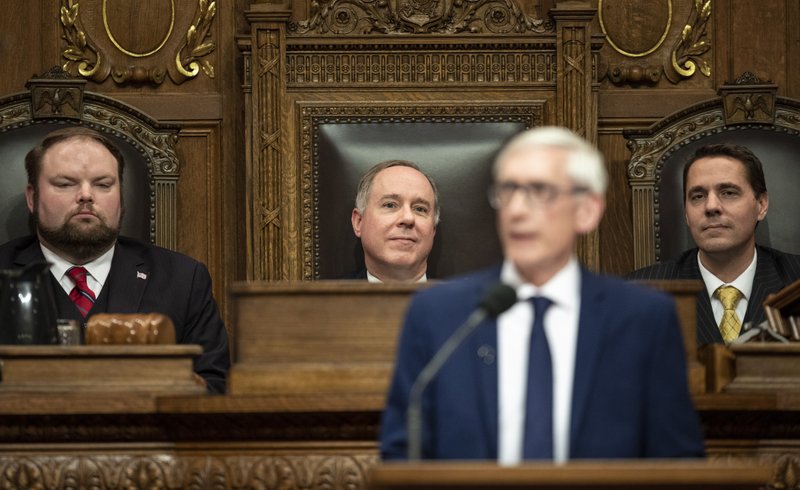Politics
Evers facing pressure to sign Wisconsin budget

MADISON, Wis. (AP) — Gov. Tony Evers faced pressure Monday to sign the state budget as passed by the Republican-controlled Legislature, even though it doesn’t include many of his priorities and GOP lawmakers made it difficult for him to reshape it with partial vetoes.
The last budget, when Republicans controlled the Senate, Assembly and governor, under Scott Walker, the budget didn’t get signed until Sept. 21, 2017 — nearly three months past the July 1 deadline.
Regardless, Republicans have been calling on the Democratic governor to sign the nearly $82 billion budget, claiming it represents the best compromise possible.
On Monday, a group representing long-term care facilities in Wisconsin also urged the governor to sign it, while the Wisconsin Association of School Boards asked for a partial veto that would increase per-student aid by $17 million.
Some liberals, however, advocated for Evers to veto the entire two-year spending plan — which would be an unprecedented move since Wisconsin moved to two-year budgets. Evers has said he would consider it.
LeadingAge Wisconsin came out Monday in favor of Evers signing the plan. The group represents more than 200 nursing homes, facilities for the developmentally disabled, independent and assisted living facilities, and community service agencies. It cited nearly $234 million more for long-term care in the two-year budget as a reason for Evers to sign the budget into law.
The increased funding in the budget for health care — about $588 million — demonstrates the dilemma Evers faces. Spending more on health care was one of his priorities, but Republicans did it without expanding Medicaid and accessing $1.6 billion in federal funding, as Evers wanted.
Evers campaigned on expanding Medicaid and many Democrats believe it helped push him to victory over Republican Scott Walker, a longtime opponent of expansion.
The budget passed by Republicans differs in many other significant ways from what Evers proposed.
Funding would increase for K-12 schools and the University of Wisconsin, but not by as much as Evers wanted. The Wisconsin Association of School Boards, which represents members of the 421 public school boards in the state, urged Evers to partially veto the budget in a way that would result in $25 per-student more in aid in 2019. That would direct $17 million more to schools.
Republicans included a $450 million middle class income tax cut, which is smaller than Evers’ proposal and would not be funded by raising taxes on manufacturers, as he suggested. And instead of raising gas taxes to pay for roads, Republicans increased vehicle licensing and registration fees.
The budget increases spending by nearly 6%, which would be more than any budget passed under Walker but less than the more than 8% Evers proposed. However, the nonpartisan Wisconsin Policy Forum on Monday noted that even under the budget as passed, the state’s main account — known as the general fund — would be left with its lowest balance since 2011.
That smaller financial cushion will make the next state budget harder to balance and weaken the state’s position to deal with the next recession, the group said.
Evers has until Friday to take action on the budget. He has not yet said whether he will sign it with partial vetoes, or veto the entire spending plan. His spokeswoman, Melissa Baldauff, declined to comment Monday.
Several budget provisions added by Republicans may be ripe for a veto. Among them is a last-minute addition used to secure the vote of Republican Sen. Chris Kapenga that would allow electric-car manufacturer Tesla to sell directly to customers in Wisconsin, rather than going through a dealer.
Republicans also included $5 million to begin the replacement of the Green Bay Correctional Institution, funding Evers did not include. Town officials have also spoken out against a GOP provision that would limit the ability of local governments to oversee quarries.
The previous state budget, signed by Walker, ended on Sunday but remains in effect until a new one is signed into law. However, during that time no spending increases approved under the pending budget would take effect.
Follow Scott Bauer on Twitter: https://twitter.com/sbauerAP







